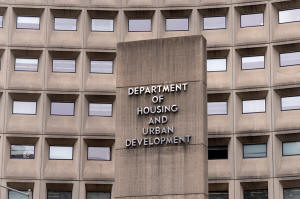HUD proposes rule that would force noncitizens from public housing
[February 20, 2026]
By MICHAEL CASEY
The U.S. Department of Housing and Urban Development on Thursday
proposed a rule that would limit public housing mostly to citizens,
which advocates fear could lead to tens of thousands of people being
evicted.
The rule, published in the Federal Register, calls for limiting funding
for those in public housing and other HUD-related housing to citizens
and eligible noncitizens. The rule would require every resident in
HUD-funded housing to show proof of citizenship or eligible status,
including those 62 years and older who previously only had to show proof
of age.
The measure would effectively bar mixed status families —- where some
household members are eligible for help — from housing and is part of
the government’s immigration crackdown. A similar rule was proposed but
never finalized during the first Trump administration and is mentioned
as a policy priority in the conservative blueprint Project 2025,
"Under President Trump’s leadership, the days of illegal aliens,
ineligibles, and fraudsters gaming the system and riding the coattails
of American taxpayers are over,” HUD Secretary Scott Turner said in a
statement.. “HUD’s proposed rule will guarantee that all residents in
HUD-funded housing are eligible tenants. We have zero tolerance for
pushing aside hardworking U.S. citizens while enabling others to exploit
decades-old loopholes.”
The proposed rule will be made official when it’s published in the
Federal Register on Friday. HUD did not answer how long it may take
before the rule takes effect.
Housing advocates were quick to criticize the move.

[to top of second column]
|

A sign for the Department of Housing and Urban Development
stands outside the agency's headquarters, Jan. 16, 2026, in
Washington. (AP Photo/Mark Schiefelbein, File)

“Our country can ensure that every one of us, no matter where we
come from or what language we speak, has a safe home," Shamus
Roller, the executive director of the National Housing Law Project
said in a statement. “Instead, Trump is trying to evict immigrant
families, citizen and non-citizen, from HUD housing.
In December, the left-leaning Center on Budget and Policy Priorities
estimated that up to 20,000 families or as many as 80,000 people
could lose assistance due to changes in eligibility that would
overturn a rule that has been in place for decades.
The impact of the rule could affect many more people who struggle to
provide proper documentation. About 3.8 million adults with
citizenship lack any form of documentation proving their
citizenship, and another 17.5 million cannot easily get the
documents.
“Everyone deserves an affordable home, including our neighbors,
friends, and coworkers who are immigrants,” said Sonya Acosta, a
senior policy analyst with the Center. “This rule would force 20,000
families with mixed immigration statuses to make the agonizing
choice between losing the assistance that helps them pay rent every
month or separating their family. People without a documented
immigration status have never been eligible for rental assistance.”
All contents © copyright 2026 Associated Press. All rights reserved |